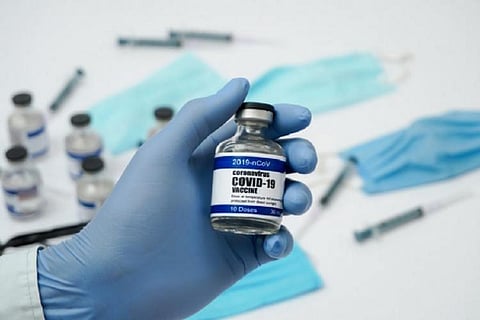From maximum wastage to 5 lakh extra doses: Here’s Tamil Nadu’s vaccine success story
Once branded as the state with the highest COVID vaccine wastage, Tamil Nadu has now fought its way to the top of the country for the least number of vaccine doses wasted. According to the Union Health Ministry data, Tamil Nadu extracted 5.88 lakh extra COVID-19 vaccine doses from its allotment between May 1 to July 13, 2021. Not only has the state declared zero vaccine wastage, it also reported the most number of extra doses extracted compared to any state. Close on TN’s heels in Gujarat with 4.62 lakh extra doses and Kerala with 3.92 lakh extra doses extracted.
There are multiple reasons for Tamil Nadu improving its performance. Dr TS Selvavinayagam, Director of Public Health and Preventive Medicine (DPHPM), says that initially vaccine wastage occurred due to hesitancy among people. “We would open a 20 dose vial and only 8-10 people would show up for vaccination. The rest of the vaccine goes to waste (as an open vial can only be stored for upto 4 hours),” he says.
But things changed with the second wave of COVID-19, vaccine hesitancy drastically reduced and people thronged vaccine centres to get the jabs. Along with this, the state also focused on three other factors which cut down on vaccine wastage.
This is overfill, dead space in syringes and the efficiency of health workers, says Dr Selvavinayagam. “Vaccine makers will fill a vial with a little extra vaccine to account for spillage. This can be anywhere between 16% and 24% (0.8 to 1.2 ml extra dose in a 10-dose vial) extra vaccine in a vial. This is called overfill and efficient health workers will be able to use this overfill in doses to vaccinate 1-2 extra people. That is, a 10-dose vial will actually have enough vaccine to jab 11-12 people and a good health worker will be able to achieve this,” he explains.
Another crucial factor is dead space in the syringes. According to the World Health Organisation, vaccines are trapped in the space between the syringe and the needle - known as ‘dead space’ and it can be reduced by using a low dead space syringe. “In Tamil Nadu, all immunisation is being carried out using auto disable syringes which have very low dead space. This reduces vaccine trapped in the syringe,” the Director of Public Health explains.
The last and most important factor is the efficiency of health workers who administer doses. Efficient health workers make sure that not much vaccine is lost due to adjustment of the syringe by ejecting dose into the air. “All our health workers have been trained to administer vaccines under the immunisation programme. Efficiency of these health workers is very important to reduce wastage,” the DPH adds.
By focusing its energies on reducing vaccine wastage, Tamil Nadu achieved 97% vaccine dose performance against total vaccines supplied on July 11, 2021, according to data released by the Directorate of Public Health and Preventive Medicine. Notably, Nagapattinam, Karur, Sivakasi and other health unit districts administered more vaccine doses than its allotted vaccines by making good use of overfill. Nagapattinam recorded 103%, Karur 104% and Sivakasi and Tenkasi 101% and 102% vaccine performance against total doses supplied on July 11.
“Overall, Tamil Nadu has administered 1.59 crore vaccine doses against 1.57 crore vaccine doses allocated to us,” says TS Selvavinayagam, by bringing vaccine wastage to nil.
Streamlined data entry
The government also streamlined data entry of vaccinations in order to arrive at the accurate wastage of doses. “Vaccine wastage is calculated from data entered on CoWin. Earlier, there were delays in entering data on CoWin promptly. We have streamlined this process and now every vaccine dose is accounted for and is entered on the portal,” says Vishu Mahajan IAS, Deputy Commission, Revenue and Finance, Greater Chennai Corporation.
The Corporation has also better planned vaccination centres to reduce wasted doses. “More centres lead to a resource deficit. This means that when there are more centres, fewer people will come to one centre which will increase risk of wastage,” he explained.
The corporation has done away with administering vaccines in UPHCs (Urban Primary Health Care Centres) and instead has allotted specific permanent vaccine centres in each zone. “With fewer centres, at least 300-400 people to each centre and there is no scope for wastage as there are alway more people than vaccine doses,” he added.

